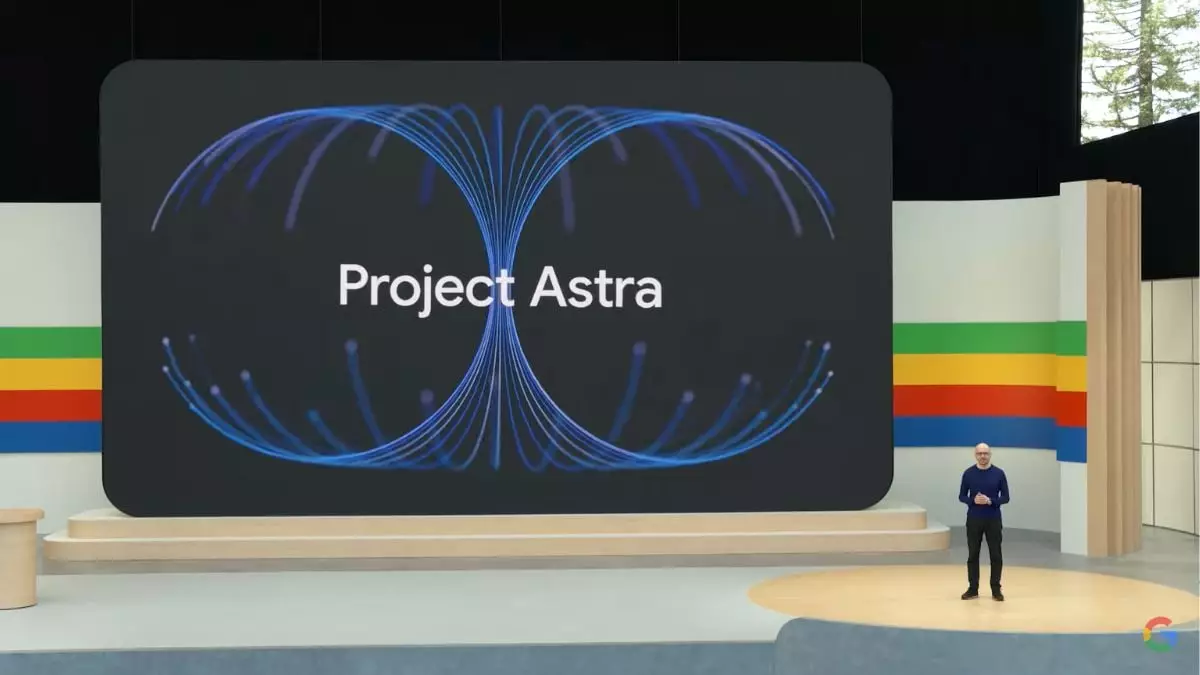Google I/O 2024’s keynote session unveiled an array of cutting-edge artificial intelligence (AI) models and tools that have been in the works for some time. Among these innovations, Project Astra, developed by Google DeepMind, stole the spotlight with its revolutionary real-time, computer vision-based AI interaction capabilities. Unlike traditional chatbots, Project Astra is designed to handle highly advanced tasks, marking a significant leap forward in the realm of AI technology.
During the event, Demis Hassabis, the co-founder and CEO of Google DeepMind, introduced Project Astra as a groundbreaking solution aimed at creating a universal AI assistant that can seamlessly integrate into everyday life. Hassabis outlined a set of key requirements for effective AI agents, emphasizing the importance of understanding and responding to complex real-world scenarios, retaining contextual information, and being adaptable and personalized to the user’s needs. Project Astra, with its impressive capabilities, promises to redefine the way we interact with AI technology.
In a captivating demo video showcased at the event, Project Astra demonstrated its prowess in real-time AI interaction. The video depicted a user engaging with the AI assistant through a smartphone camera, prompting queries and receiving immediate, accurate responses. Notably, Project Astra leveraged visual information to provide contextually relevant answers, showcasing its advanced generative capabilities. For example, when asked to describe a set of crayons using alliteration, the AI responded effortlessly, highlighting its linguistic proficiency and creativity.
One of the most impressive feats exhibited by Project Astra was its ability to process visual data in real-time and remember specific details over time. When quizzed about the user’s surroundings, such as the neighborhood or objects like glasses, the AI promptly identified and provided accurate information, showcasing its remarkable computer vision processing capabilities. This level of intelligence and adaptability sets Project Astra apart as a game-changing innovation in the field of AI technology.
While Project Astra is not currently available for public or private preview, Google continues to refine the model and explore potential use cases for its innovative AI features. As the development progresses, Google aims to make Project Astra accessible to users in a way that enhances everyday interactions and experiences. Despite the remarkable advancements showcased in the demo, Google recognizes the need to further optimize and refine Project Astra to meet the evolving demands of AI technology.
Although Project Astra stands out as a groundbreaking AI assistant, it faces competition from other tech giants in the field. OpenAI’s recent unveiling of GPT-4o, featuring similar capabilities and emotive voices, poses a formidable challenge to Google’s Project Astra. Both projects signal a new era of AI innovation, where human-like interactions and intelligent responses are becoming increasingly prevalent in AI assistants.
Google’s Project Astra promises to redefine the future of AI assistants with its advanced capabilities and real-time interaction features. As technology continues to evolve, the potential for AI to enhance everyday tasks and experiences grows exponentially, paving the way for a more interconnected and intelligent digital landscape. Project Astra represents a significant step forward in AI research and development, setting the stage for a new era of innovation and user-centric AI solutions.

Leave a Reply